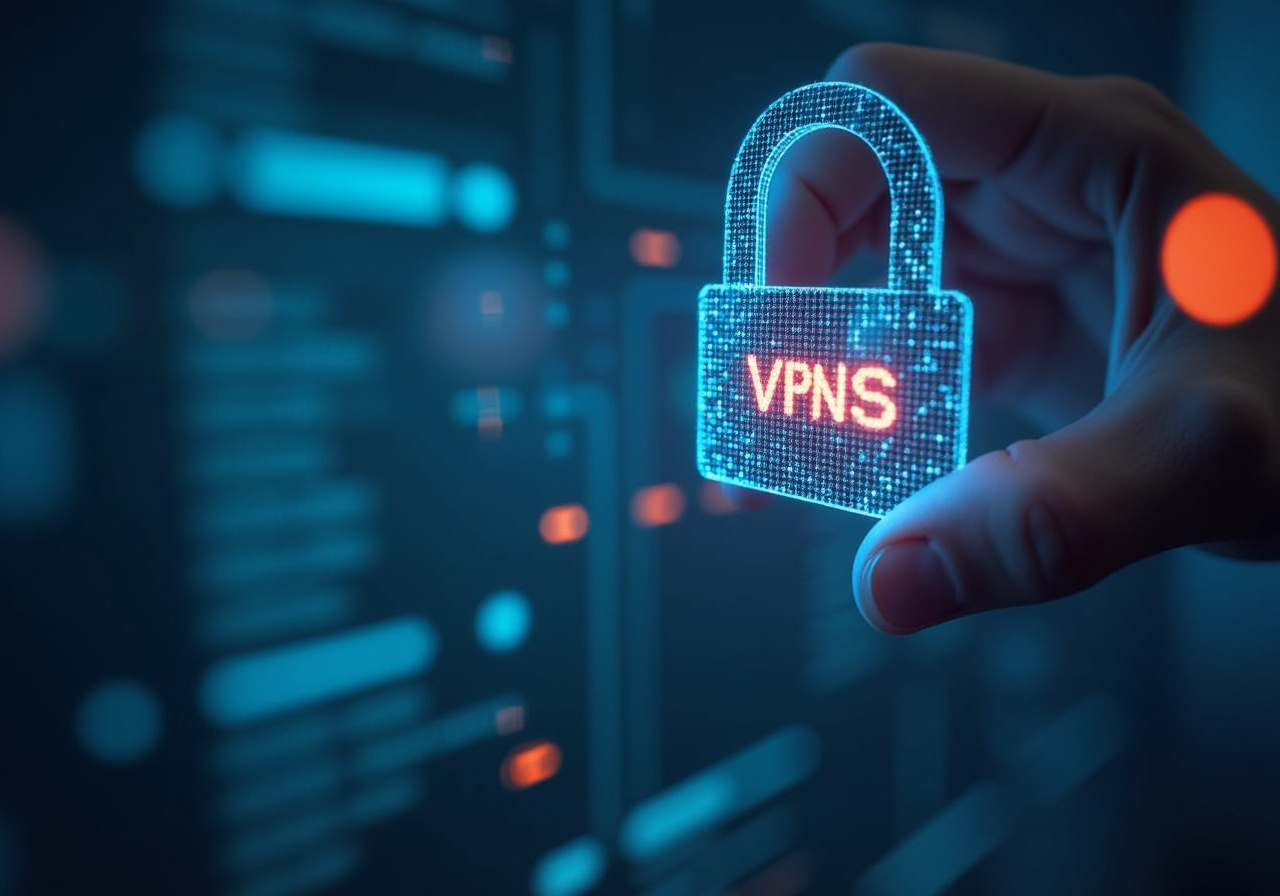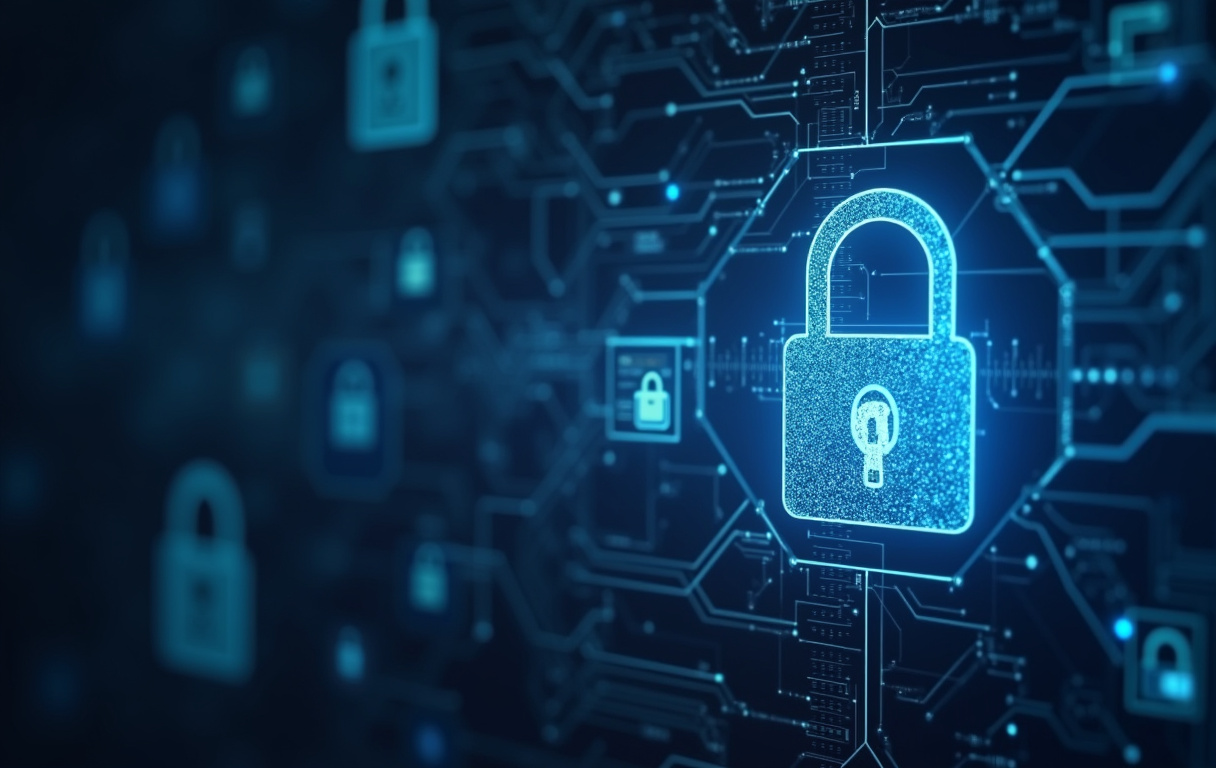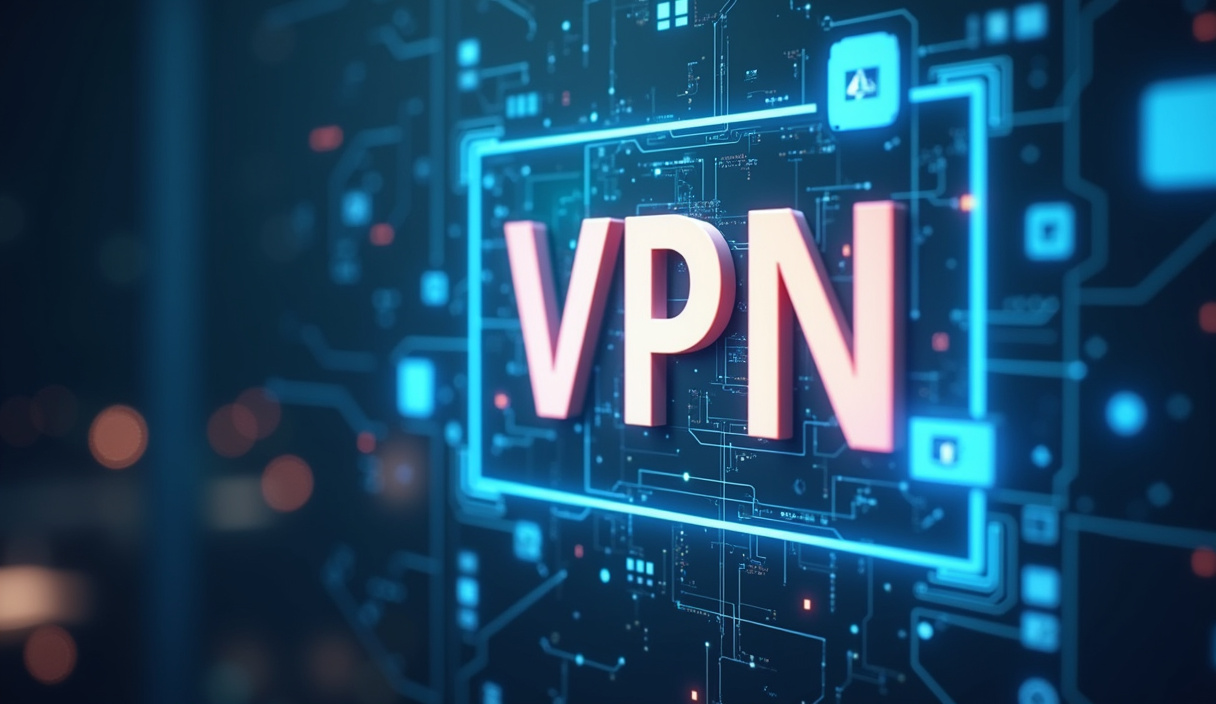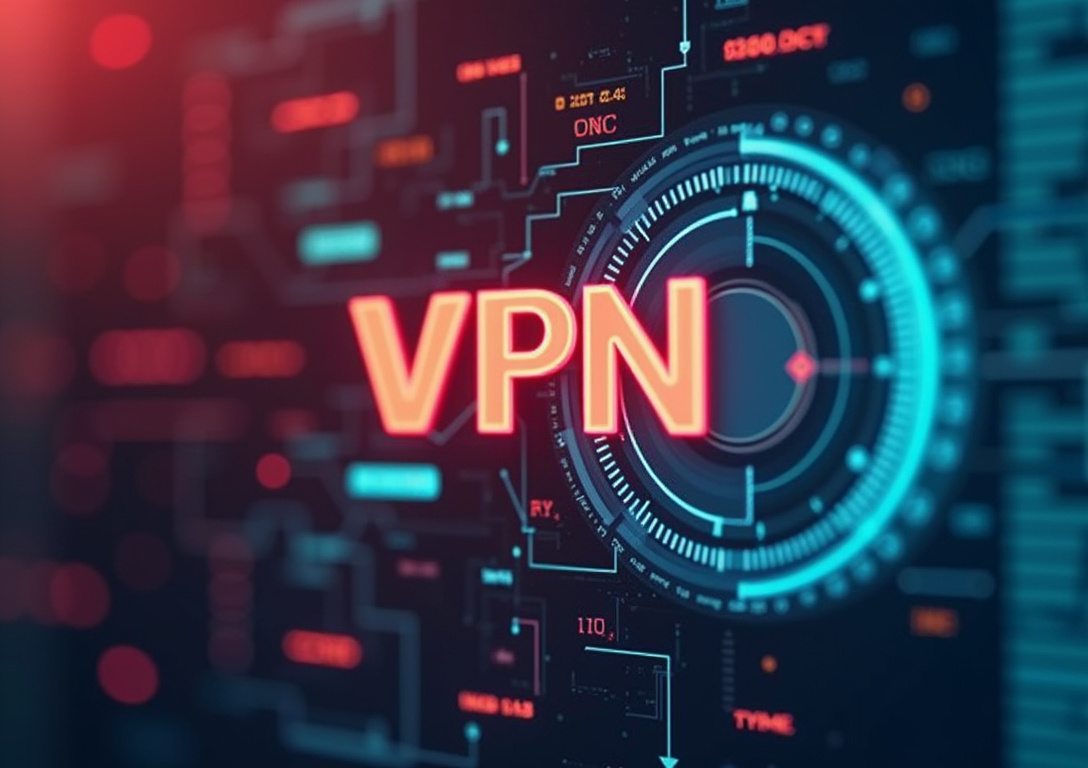VPN Encryption: How It Secures Your Data
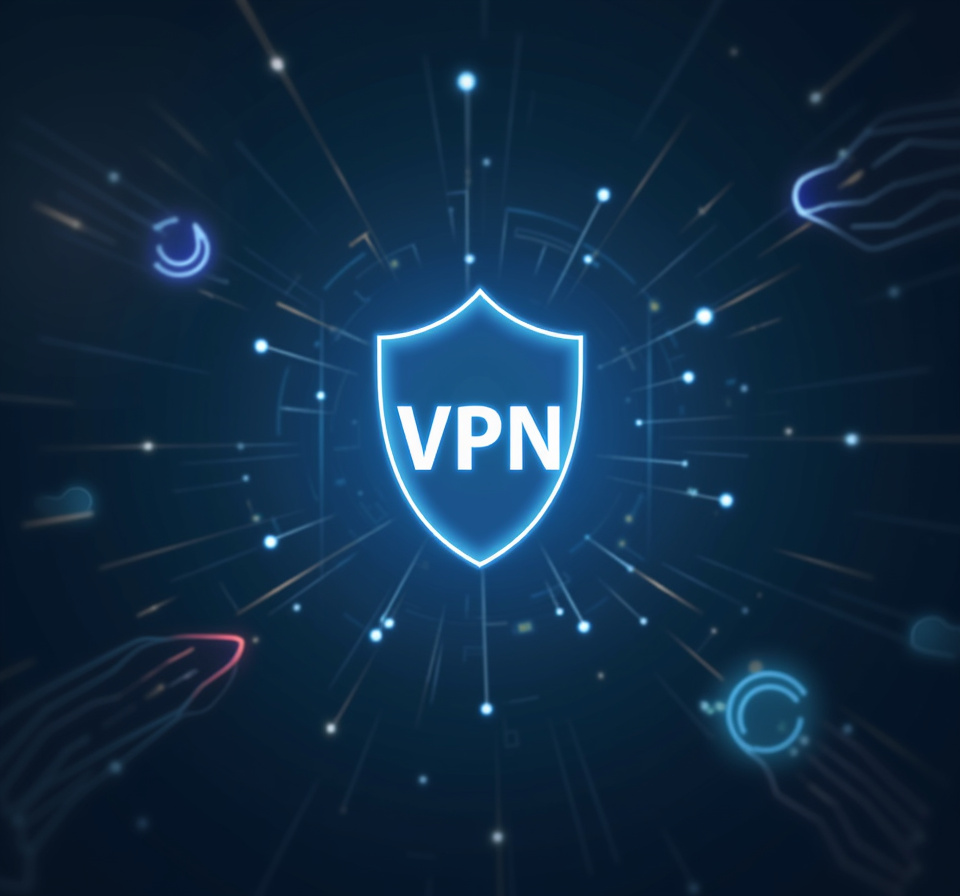
Table of Contents
- Understanding the Fundamentals of VPN Encryption
- Choosing the Right VPN Protocol for Optimal Security
- Selecting a Reputable VPN Provider and Configuring Security Settings
- Logging, Monitoring, and Compliance: Maintaining a Secure VPN Implementation
- The Future of VPNs: Enhancements in Security and Privacy
Understanding the Fundamentals of VPN Encryption
In today's hyper-connected world, data security has become paramount. We entrust sensitive information to the internet daily, from online banking and shopping to sharing personal details on social media. However, the internet is not inherently secure, and data transmitted without protection is vulnerable to interception and exploitation.
This is where VPN encryption comes into play. VPN encryption is the cornerstone of a Virtual Private Network (VPN), transforming a public, unsecured connection into a private and secure tunnel for your data. It's the process of converting readable data (plaintext) into an unreadable format (ciphertext), ensuring that even if intercepted, the information remains unintelligible to unauthorized parties.
The algorithm transforms the original data into an unreadable format, protecting it from unauthorized access during transit. The primary goal of VPN encryption is to ensure confidentiality, meaning only the intended recipient can access and understand the data. This is achieved through complex algorithms and cryptographic keys that unlock the encrypted data.
These keys, which can be symmetric (the same key for encryption and decryption) or asymmetric (a pair of public and private keys), are essential components in the process. Symmetric encryption, the key must be securely shared between the sender and receiver, while asymmetric encryption allows for key distribution without compromising security. VPN encryption goes beyond merely scrambling data; it employs sophisticated protocols and techniques to create a secure and authenticated connection between your device and the VPN server.
This involves establishing a secure channel, verifying the identity of both parties, and ensuring that the data remains unaltered during transmission. Understanding how VPN encryption works, the different types of encryption standards available, and how to choose a secure VPN provider is essential for protecting your online privacy and data security. At its core, VPN encryption acts as a digital shield, safeguarding sensitive information from cyber threats such as eavesdropping, data theft, and man-in-the-middle attacks.
It provides a secure tunnel for your data, protecting it from prying eyes. In addition to protecting data in transit, some VPNs also offer encryption for data at rest, which provides an additional layer of security. The increasing sophistication of cyber threats makes relying on basic security measures insufficient.
VPN encryption provides an additional layer of protection, safeguarding your data from prying eyes and potential cyberattacks. Moreover, VPNs are essential tools for circumventing geographical content restrictions, protecting online anonymity, and maintaining secure communication channels. Whether you're accessing geo-restricted content, protecting your online identity, or ensuring secure communication channels, VPNs provide a vital element of online security.
Data security is not just about preventing external attacks; it also encompasses protecting data from internal threats and ensuring data integrity. VPN encryption contributes to a more secure overall IT infrastructure by providing a secure channel for data transmission and minimizing the risk of data breaches. Data integrity is paramount, ensuring that data remains unaltered during transit.
VPN encryption helps maintain this integrity by protecting the data from tampering. As businesses increasingly rely on remote workforces and cloud-based services, VPNs and their robust encryption become even more critical for maintaining data security and compliance with data privacy regulations. With the growing reliance on cloud-based services and remote workforces, VPNs are more critical than ever for businesses to maintain data security.
They provide a safe and secure channel for employees to access company resources, regardless of location. Ignoring VPN encryption is akin to leaving your front door unlocked, inviting potential intruders to access your valuable information. The consequences of neglecting VPN encryption can be severe, including data breaches, financial losses, and reputational damage.
VPN encryption, used as a secure data VPN, is essential for safeguarding your online activities and ensuring that your data remains private and secure.
Choosing the Right VPN Protocol for Optimal Security
The effectiveness of VPN encryption hinges on the encryption standards employed. These standards dictate the algorithms and key lengths used to encrypt and decrypt data, significantly impacting the strength and security of the connection. Encryption standards aren't just arbitrary choices; they represent the culmination of extensive research and development in cryptography, constantly evolving to combat emerging threats.
A robust encryption standard offers a strong defense against brute-force attacks, where attackers attempt to guess the encryption key by trying every possible combination. The longer the key length, the more computationally expensive it becomes to crack the encryption. Several encryption standards are prevalent in the VPN industry, each offering different levels of security and performance.
One of the most widely recognized and trusted encryption standards is Advanced Encryption Standard (AES). AES is a symmetric-key encryption algorithm adopted by the U.S. government and considered virtually impenetrable when implemented with sufficiently long key lengths, such as AES-256.
AES-256, in particular, is considered the gold standard in VPN encryption due to its robust security and resistance to brute-force attacks. AES is not just a theoretical construct, but an active and constantly evolving standard that has been rigorously tested and analyzed by cryptographers worldwide. Its adoption by governments and businesses alike highlights its proven reliability.
Another common encryption standard is Triple DES (3DES), an older algorithm that encrypts data three times using the DES cipher. While still considered reasonably secure, 3DES is slower and less efficient than AES, making it less desirable for modern VPN applications. 3DES, designed as an interim solution to address weaknesses in the original DES algorithm, highlights the importance of continuous advancements in encryption standards.
As technology evolves, so too must encryption algorithms to stay ahead of potential vulnerabilities. The choice of encryption standard also depends on the VPN protocol being used. VPN protocols are a set of rules that govern how data is transmitted over the VPN connection.
Common VPN protocols include OpenVPN, IKEv2/IPsec, WireGuard, and L2TP/IPsec. These protocols dictate the framework in which encryption is implemented, influencing the overall efficiency and security of the VPN connection. OpenVPN is a highly versatile and open-source protocol that supports a wide range of encryption standards, including AES.
It is considered one of the most secure VPN protocols and is widely used by VPN providers. OpenVPN's open-source nature allows for community scrutiny and ongoing improvements, making it a robust and adaptable choice. IKEv2/IPsec is another secure protocol that is often used for mobile devices due to its stability and fast connection speeds.
It also supports AES encryption and is generally considered a reliable option. IKEv2/IPsec offers benefits such as automatic reconnection and strong encryption capabilities, especially useful for users connecting from mobile devices. WireGuard is a newer protocol known for its speed and efficiency.
It utilizes state-of-the-art cryptography and is gaining popularity in the VPN industry. Its streamlined code base and modern cryptographic primitives make it an attractive option for performance-conscious users. L2TP/IPsec is an older protocol that is often used as a fallback option.
While it supports encryption, it is generally considered less secure than other protocols. L2TP/IPsec offers broad compatibility, but its reliance on the IPSec protocol can introduce security vulnerabilities. The combination of encryption standard and VPN protocol determines the overall security of the VPN connection.
The interplay between encryptions standards and protocols underlines their synergy. The protocol dictates how encryption keys are negotiated, how data is encapsulated, and how the connection is managed. It's crucial to choose a VPN provider that utilizes strong encryption standards, such as AES-256, in conjunction with a secure VPN protocol like OpenVPN, IKEv2/IPsec, or WireGuard.
VPN providers which give choices for protocols and encryptions standards, allows you to choose based on your needs, security or speed.
Selecting a Reputable VPN Provider and Configuring Security Settings
Selecting the right VPN for your needs requires considering various factors, with data security being paramount. Data security shouldn't be just a checkbox item during the VPN selection: data security must be the Core element. A thorough VPN comparison should focus not only on price and server locations but also on the encryption standards and security features offered.
Consider the kind of data you will share and the risk that involves, this would help choosing the best VPN service for your needs. Look for VPN providers that explicitly state their use of strong encryption standards like AES-256. Transparency is a key indicator of a VPN provider's commitment to security.
Reputable VPN providers are transparent about their security practices and readily provide information about the encryption algorithms and protocols they employ. Digging into their website and documentation is crucial to ensure that encryption details aligns your security level needs. Avoid VPN providers that use outdated or weak encryption standards, as they may not provide adequate protection against modern cyber threats.
Relying on outdated encryption algorithms is a serious security risk. Weak encryption standards can be easily compromised, leaving your data vulnerable to interception and decryption. Another critical aspect of VPN comparison is logging policy.
A strict no-logs policy ensures that the VPN provider does not track or store your online activity. This is essential for maintaining privacy and anonymity while using the VPN. The more aggressive the logging policy the higher the risk to your data security.
Carefully review the VPN provider's privacy policy to understand their logging practices. Seek legal documentation as well. Look for providers that have been independently audited to verify their no-logs policy.
Independent audits provide objective assurance that the VPN provider is adhering to its stated no-logs policy. Server locations are also an important consideration, as they can affect your connection speed and access to geo-restricted content. The speed between your device and the VPN server location affect directly your connection.
Choose a VPN provider with a wide network of servers in various locations to ensure optimal performance and flexibility. Location and number of servers are key factors, especially if you are planning to access geo-restricted content. Another important factor is the availability of security features such as a kill switch.
A kill switch automatically disconnects your internet connection if the VPN connection drops, preventing your data from being exposed. Think of the kill switch as a failsafe mechanism designed to protect your data in the event of a sudden VPN disconnections. Other security features to look for include DNS leak protection and malware protection.
DNS leak protection prevents your DNS requests from being exposed to your ISP, while malware protection helps protect your device from malicious software. DNS leak protection maintains your anonymity and prevents eavesdropping by your ISP. Malware protection adds an additional layer of defense against malicious software and cyber threats.
In the realm of VPN comparison, remember that free VPNs often come with significant security risks. "If something is free, then you are the product". Free VPN providers may monetize their service by tracking your data and selling it to third parties.
They may also use weak encryption standards or inject malware into your device. Free VPNs often come with caveats, including limited bandwidth, slow speeds, and intrusive advertising. It's generally best to avoid free VPNs and opt for a reputable paid VPN provider that prioritizes data security and privacy.
Prioritize security and privacy over cost considerations when choosing a VPN. Your peace of mind and data security are worth the investment.
Logging, Monitoring, and Compliance: Maintaining a Secure VPN Implementation
Secure data VPN implementations go beyond mere encryption. They encompass a holistic approach to security, integrating multiple layers of defense to protect sensitive information. A truly secure VPN implementation recognizes that encryption is just one piece of the puzzle and builds upon it with other safeguards.
This layered approach includes robust authentication mechanisms, proactive threat detection, and ongoing security monitoring. Strong authentication is the first line of defense in a secure data VPN. It ensures that only authorized users can access the VPN connection.
This can be achieved through various methods, including multi-factor authentication (MFA), which requires users to provide multiple forms of identification before being granted access. MFA adds an extra layer of security by requiring something you know (password), something you have (security token), and/or something you are (biometric scan). VPN providers that use robust authentication methods, helps to avoid external hacks or even internal personnel breaches.
Proactive threat detection is another essential component of a secure data VPN implementation. This involves continuously monitoring the VPN connection for suspicious activity, such as unusual traffic patterns or attempts to access unauthorized resources. Threat detection systems often utilize intrusion detection systems (IDS) and intrusion prevention systems (IPS) to identify and block malicious activity.
These systems analyze network traffic, identify suspicious patterns, and block malicious activity in real time. Security isn't just about preventing attacks; it's also about detecting and responding to them quickly and effectively. Ongoing security monitoring is also vital.
It involves regularly reviewing security logs, monitoring system performance, and conducting security audits to identify potential vulnerabilities. Security audits help identify weaknesses in the VPN configuration, allowing for proactive remediation. Regular reviews of security logs can reveal suspicious activity that might otherwise go unnoticed.
Secure data VPN implementations also prioritize data integrity. This means ensuring that data is not altered or corrupted during transmission. Data integrity can be achieved through various techniques, including hashing algorithms and digital signatures.
Hashing algorithms generate a unique fingerprint of the data, which can be used to verify that the data has not been tampered with. Digital signatures provide a way to authenticate the sender of the data and ensure its integrity. Strong keys and lifetime, must be kept secure into hardware modules, to avoid the risk of security vulnerabilities.
Firewalls are an integral part of secure data VPN architectures. They control the traffic entering and exiting the VPN tunnel, filtering out malicious traffic and preventing unauthorized access. Firewalls act as gatekeepers, allowing only authorized traffic to pass through the VPN tunnel.
A well-configured firewall can significantly reduce the risk of security breaches. Secure implementations also include traffic masking techniques like obfuscation. Obfuscation is especially useful in regions with strict internet censorship, where VPN traffic might be blocked.
Furthermore, secure data VPNs should adhere to the principle of least privilege. This means granting users only the minimum level of access necessary to perform their job duties. Limiting access reduces the potential impact of a security breach by preventing злоумышленникам from accessing sensitive resources.
The Future of VPNs: Enhancements in Security and Privacy
In conclusion, VPN encryption is a critical component for ensuring data security and online privacy in today's digital landscape. It transforms a public, vulnerable connection into a secure and private tunnel, protecting your data from interception and exploitation. Understanding the principles of VPN encryption, the various encryption standards available, and how to choose a secure VPN provider is essential for safeguarding your valuable information.
No matter what is your type of user or company, VPN becomes a must. Choosing the right VPN, is choosing the right ally against threats. The landscape of cyber threats is constantly evolving, making it more important than ever to rely on robust security measures.
VPN encryption provides a critical layer of protection, shielding your data from prying eyes and potential cyberattacks. By encrypting your internet traffic, a VPN makes it virtually impossible for unauthorized parties to decipher your sensitive information. Selecting a VPN with strong encryption standards like AES-256 is paramount.
AES-256 is considered the gold standard in VPN encryption, offering superior security and resistance to brute-force attacks. A VPN that employs AES-256 encryption provides a high level of confidence that your data is protected. The combination of robust encryption and secure VPN protocols creates a formidable barrier against cyber threats.
By prioritizing these security features, you can significantly enhance your online security posture. Another essential element to consider is the VPN provider's logging policy. A strict no-logs policy ensures that the VPN provider does not track or store your online activity.
This is crucial for maintaining privacy and anonymity while using the VPN. A reputable VPN provider will be transparent about its logging practices and subject itself to independent audits to verify its no-logs policy. Beyond encryption and logging policies, secure data VPN implementations encompass a holistic approach to security.
This includes strong authentication mechanisms, proactive threat detection, and ongoing security monitoring. Multi-factor authentication, intrusion detection systems, and regular security audits are all vital components of a comprehensive VPN security strategy. Remember that free data VPNs often come with security risks.
Free VPN providers may monetize their service by tracking your data and selling it to third parties or using weak encryption standards and compromsing your data. Investing in a reputable paid VPN provider is a worthwhile investment in your data security and online privacy. Don't compromise on security; choose a VPN provider that prioritizes your privacy and offers robust security features.
By taking a proactive approach to data security and choosing a secure data VPN, you can significantly reduce your risk of becoming a victim of cybercrime. In a world where data breaches and cyberattacks are becoming increasingly common, VPN encryption is an indispensable tool for protecting your sensitive information and maintaining your online privacy.
Stay Updated
Get the latest VPN news, tips, and exclusive deals to your inbox.
